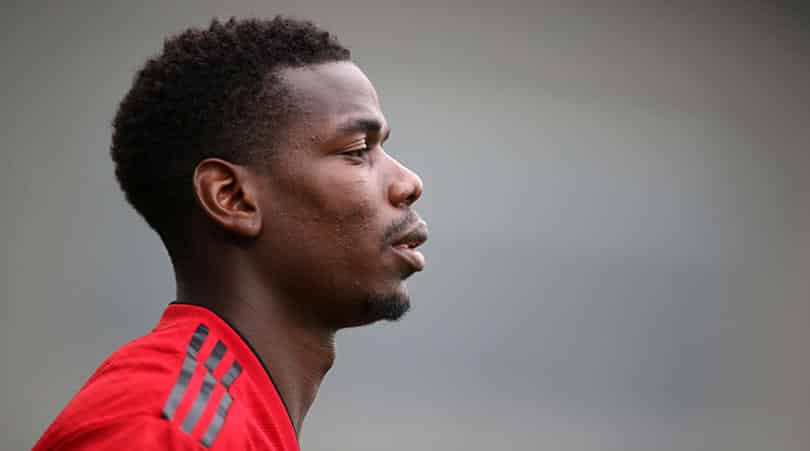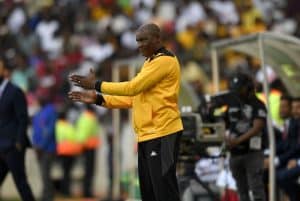Players once moved to Old Trafford for the lustre of association with a global giant, but mere money is becoming the deciding – and troubling – factor as success continues to elude them, writes FourFourTwoSA.
It was the sort of loyalty pledge that may actually guarantee little; a factually-accurate statement that fell short of being definitive. “As long as you don’t see me in a Barcelona shirt, I am a Manchester United player,” said Paul Pogba. “There will always be rumours.”
One theory is that his agent, Mino Raiola, welcomes some and produces others. Pogba generated some last month when suggesting he would be fined if he said what he really thought.
One of United’s previous record signings was freer to talk. Whereas Pep Guardiola claimed Raiola offered Pogba to Manchester City, Dimitar Berbatov was definitely pursued by both of the neighbours in 2008. ‘My agent told me but I said, “Don’t even bother mentioning anyone else, I’m going to Man United”,’ the Bulgarian revealed. ‘Because of the history, the players, the tradition, everything.’
City, his agent said, would offer more money. It was not a persuasive case. ‘I was like a horse with blinkers,’ Berbatov added. He got his wish.

Decade of decay
Perhaps it is simply a tale of two singular, much misunderstood characters. Pogba, with his avaricious agent, innate wanderlust and seeming problems with Jose Mourinho, may not be representative of a team; a generation; an ethos.
And maybe it shows the difference a decade has made. Berbatov joined the reigning European champions. Pogba may eventually leave in a quest to win the Champions League. Ten years ago, United tended to make stars. Now they buy them.
But if Berbatov was an inimitable footballer, his decision was not unique. Four years later, Robin van Persie faced a similar choice between the warring halves of Manchester. He cited the players, the stadium and the manager, listened to ‘the little boy inside of me’ and concluded: ‘That boy was screaming for Man United.’
United were a destination club for the romantics, and not merely for two men whose eloquence was apparent on and off the field. Perhaps it still is: after all, more of the game’s luminaries have joined in the last four years than in the previous decade: Pogba ranks among them, along with Zlatan Ibrahimovic, Romelu Lukaku, Alexis Sanchez and Angel Di Maria.

Indeed Sanchez, like Berbatov and Van Persie beforehand, had been a City target. But while neither United nor the Chilean would admit it, money felt like the deciding factor in his move; cost was a reason City walked away. Sanchez is now the highest-paid player in the Premier League. Di Maria has admitted that he never wanted to leave Real Madrid. Old Trafford felt like the last stop in Ibrahimovic’s grand European tour, but he too became the Premier League’s best-paid player, just as Raiola pocketed a £41-million bonus for facilitating Pogba’s move from Juventus.
The most depressing conclusion for United could be that the motives for joining have shifted from idealism to finances; from principle to pounds and pence; from realising a dream to filling a bank account. Others joined United to fulfil an ambition.
If Pogba leaves for Barcelona, he may say it’s a product of exactly that. Thus far, he has achieved less at Old Trafford than with France or Juventus. It could leave United looking like a stepping stone, which is an uncomfortable position for arguably the world’s biggest club to be in.
Yes, David Beckham and Cristiano Ronaldo decamped to Real Madrid when Alex Ferguson was at the peak of his powers, but they went after winning the Champions League with United. More remarkably, Carlos Tevez went to Manchester City in a deal that many will always feel was about funds, just as there are those at the Etihad who will now admit some signed for the money in their early days among the super rich.
While nearly all the elite clubs have paid some eye-catching fees, now City feel sufficiently confident in their pulling power to argue that they only sign those who really want to come. Maybe there has been a role reversal.
Finding an identity
Allure can come from an identity. United were proof of it once; perhaps City are now; perhaps Liverpool are, given the way players from Alex Oxlade-Chamberlain to Virgil van Dijk seemed determined to sign for Jurgen Klopp.
That combination of a charismatic manager, an attacking style of play and the probability of individual improvement long formed part of United’s appeal. Berbatov signed up for the mystique and majesty of Manchester United, not just a salary.
It fits into a broader question of what United now stand for, apart from making a lot of money and being willing to spend large amounts of it on very famous footballers. Because, while they chose not to this summer, they can still blow others out of the water for transfer fees, wages or both.
Yet while United’s history has often included paying sizeable sums for footballers, Berbatov and Van Persie included, that status as a destination club enticed them to come and made it feel like the culmination of a career-long journey – not a stopping point on the road to somewhere else.






